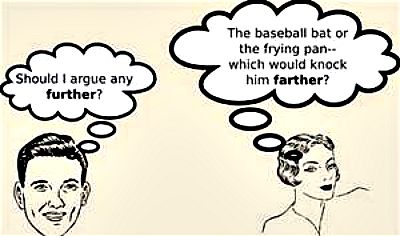 |
Learn English Locally, Apply It Worldwide! Enjoy Regular Practice |
Comparison of Adverbs
The comparison of adverbs is very similar to that of the adjectives that we considered previously. We also know that we can make adverbs from adjectives, one of the methods being by adding the -ly ending. For example, from the adjective ‘quick’ we form the adverb ‘quickly’. Just like the long adjectives, these have their comparison with more and most:
quickly – more quickly – most quickly
Example:
"The surviving antelope has to run more quickly than another antelope, in order to safely escape the hungry lion."
As with the adjectives, there is a small group of adverbs that have irregular comparison. The most common are the following:
well – better – best:
"You have to be better, to qualify for the grand prix."
"Of the three paintings, she liked the first one best."
badly – worse – worst:
"The south of the country was hit by the crisis worse than the north."
"The young animals were worst affected by the snow during last December."
much – more – most:
"She proved that she deserved the prize more than anyone else."
"Her husband was her most helpful friend, when she needed encouragement."
little – less – least:
"The trip was less tiresome than they thought."
"The accident happened when they least expected it."
A special case:
far – further – furthest OR far – farther – farthest:

Many
people are perplexed as to what the difference is between 'further' and
'farther'. We use 'farther' usually to express actual, physical
distance, whereas 'further' refers to an extension of time or degree, or another abstract concept:
"He went to study German at an Institute of Further Education."
"Points A and B seem to be farther apart than they looked on the plan."
"We traveled farther in one week than any of us had expected."
"The trip took us even further into debt."
"Further troubles arose as they walked farther into the valley."
English Corner Weekly E-zine
Packed with knowledge, published on Tuesdays.
Get yours here!
Our Archives:
Our lessons in the names and sounds of letters, short & long vowel sounds, CVCs, CCVCs, CVCCs, sight words, vowel and consonant contrasts, etc.
Our lessons will help increase your vocabulary, word recognition, find meaning in context, skills for TOEFL tests and other games, for fun.
Here we shall build some lessons to help you improve your writing skills.
Lots of lessons: cause & effect, comparisons, linking signals, relative clauses, presenting information, expressing emotions and grammar games, of course. We had more lessons on: intensifying adverbs and phrasal verbs, expressing various concepts such as addition, exception, restriction and ambiguity. Lately we started some exercises: likes/dislikes, frequency adverbs (twice), verb tenses, etc.
Learn how to build a website, by using the SBI! system - start from the basics, developing a site concept and a niche, supply and demand, learn about profitability and monetization, payment processing, register domain, website structure and content as a pyramid. Also learn about the tools I'm using to build this website. We also covered how to build traffic, working with search engines, building a good system of inbound links, using social marketing and blogs with the SBI system, how to use Socialize It and Form Build It, how to publish an e-zine and how to build a social network in your niche.
We looked at a few games by now: Countable & uncountable nouns, Free Rice, Name That Thing, Spell It, Spelloween, the Phrasal Verbs Game, Preposition Desert, The Sentence Game, Word Confusion, Word Wangling, Buzzing Bees, and The Verb Viper Game.
Be prepared to play and learn more pretty soon.
